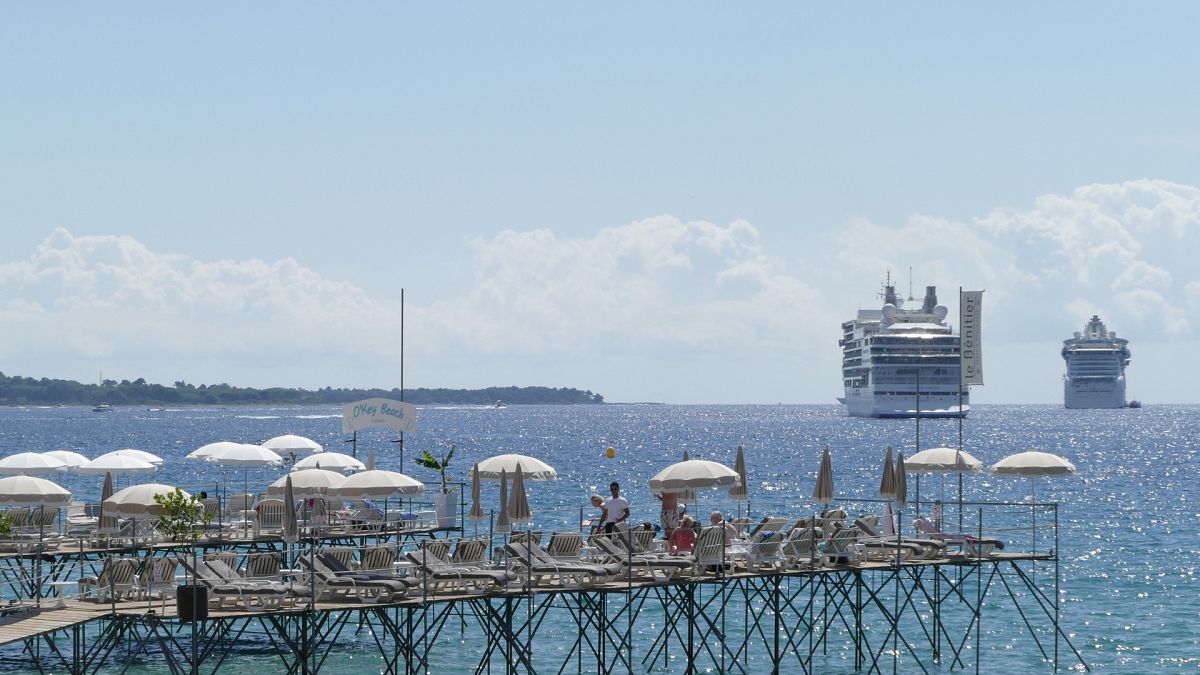

In recent times, the European landscape has been marked by both environmental challenges and proactive measures to address them. From bustling coastal cities to the deep ocean floor, a mindful shift toward sustainability and caution is taking shape across the continent.
The picturesque city of Cannes, a jewel of the French Riviera famed for its culture and beauty, is set to become a symbol of sustainable tourism come January 2026. Recognizing the need to protect its delicate coastal environment and enhance the experience for visitors, Cannes has announced a new regulation to limit cruise ship access. Specifically, cruise vessels carrying more than 1,000 passengers will soon be restricted from docking at its port. This decision aims to reduce crowding and curb the environmental footprint of these massive ships, promoting a more balanced and thoughtful approach to tourism.
This initiative reflects a broader trend of environmental mindfulness being adopted across regions renowned for their natural beauty. By capping daily disembarkations, Cannes hopes to ensure that its allure remains unmarred by excessive tourist numbers while safeguarding the ecological health of its waters. This move is expected to set a precedence, encouraging other tourist destinations to evaluate and enhance their environmental policies.
While coastal areas are being reimagined for sustainability, the wider Southern Europe region contends with another pressing issue: an intense heatwave that has gripped several nations. Countries like Italy, Spain, Greece, and Portugal have been experiencing soaring temperatures, with thermometers reaching over 40°C. This severe heat is exacerbating existing dry conditions, amplifying the risk of wildfires, and prompting authorities to issue widespread alerts.
Health advisories and precautionary steps are being taken to counteract the adverse effects of the heat. In bustling cities across Italy and Spain, red alerts have been declared to prioritize public safety. With such alerts, regional authorities are deliberating initiatives such as temporary work bans during peak temperatures to protect workers from heat exposure. These measures underscore the importance of adapting to shifting climatic conditions to safeguard both citizens and the environment.
The heatwave serves as a stark reminder of the growing realities of climate change, urging a collective consciousness towards preventive actions and sustainable living. Amidst the sweltering heat, communities are encouraged to stay hydrated and modify their activities to weather the intense conditions safely.
Beyond the immediate climate actions on land and sea, a silent environmental issue is surfacing beneath European waters. An alarming number of sunken warships, remnants from World War I and World War II, rest on the ocean’s bed. These submerged vessels, while historical icons, represent potential environmental hazards as they decay and release toxic cargo into the marine ecosystem. The gradual deterioration of these ships poses urgent, yet often overlooked, risks to oceanic health.
Environmentalists and scientists have raised concerns about the pollutants these war-era relics could leak into the marine environment. This unfolding situation calls for a careful evaluation and potential interventions to neutralize the threat and preserve ocean purity. Acknowledging these submerged risks highlights the necessity to address historical pollution legacies within broader ecological conservation agendas.
As each piece of this environmental mosaic unravels, a common thread emerges: the call for innovative solutions and sustainable practices. European communities, cities, and nations are demonstrating resilience and foresight by implementing policies that protect nature and enhance the quality of life. Whether through restriction measures on oversized cruise ships, preemptive steps against wildfire threats, or tackling historical underwater pollutants, there is a reassuring mindfulness towards nurturing the environment.
This renewed focus on environmental stewardship, adaptive strategies, and collective vigilance fosters hope and optimism. As Europe navigates these challenges and pioneers comprehensive solutions, it sets an inspiring example for global communities to emulate. Together, these actions resonate a harmonizing melody of living in balance with nature, ensuring that future generations inherit a planet where ecosystems and humanity coexist harmoniously.
Source: {link}
